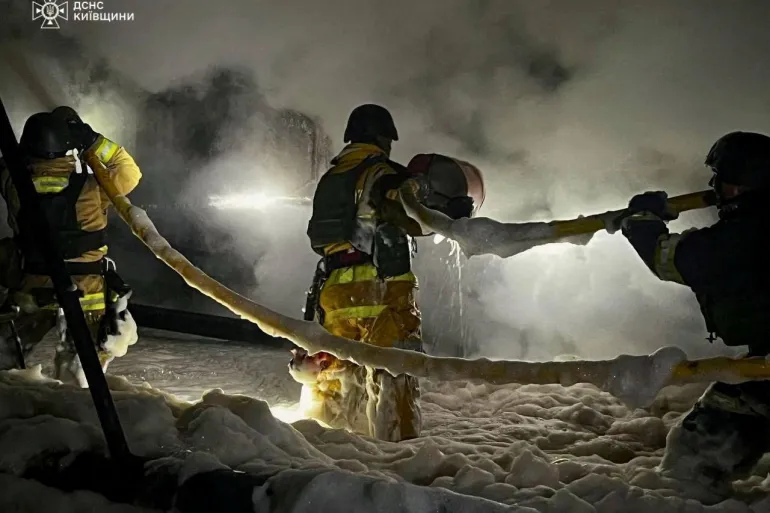
Kyiv, Ukraine – November 1, 2025
The energy ministers of the Group of Seven (G7) have jointly condemned Russia’s repeated attacks on Ukraine’s energy infrastructure, calling them “devastating” to civilian life, the economy, and the environment. Ukrainian authorities have described the latest strikes as acts of “nuclear terrorism,” highlighting the growing threat to both human safety and nuclear facilities amid Russia’s ongoing invasion.
G7 Statement on Russian Attacks
In a Friday declaration, the G7 nations – Canada, France, Germany, Italy, Japan, the United Kingdom, and the United States – criticized Moscow for systematically targeting Ukraine’s civilian energy networks. The ministers warned that the attacks on natural gas pipelines, power substations, and electricity grids not only endanger lives but also threaten critical infrastructure as winter approaches.
The G7 emphasized continued support for Ukraine’s energy recovery through financial aid, credit facilities, risk insurance, policy alignment, and encouragement of long-term private sector investment.
“Russia’s attacks continue to inflict devastating social, environmental, and economic consequences on the Ukrainian people,” the statement read.
Kyiv Calls for Stronger International Response
Ukrainian Prime Minister Yulia Svyrydenko said the strikes aim to “plunge Ukraine into darkness,” targeting citizens at the most vulnerable time of the year. She stressed that stopping these attacks requires enhanced air defense systems, stricter sanctions, and maximum international pressure on Russia.
Ukraine’s Ministry of Foreign Affairs condemned what it termed “deliberate strikes” on substations that supply external power to nuclear plants. The ministry warned that such actions bear the hallmarks of nuclear terrorism and constitute a severe breach of international humanitarian law.
Impact on Electricity, Water, and Heating
The Russian strikes forced Ukrainian authorities to impose nationwide electricity limits for industrial and retail consumers, while some regions faced disruptions in water supply and heating. The International Atomic Energy Agency (IAEA) confirmed that three nuclear power plants in Ukraine had to reduce output following the attacks.
“The dangers to nuclear safety continue to be very real and ever-present,” said IAEA Director General Rafael Grossi. “I once again call for maximum military restraint near nuclear facilities.”
Zaporizhzhia Nuclear Power Plant in Focus
The Zaporizhzhia nuclear power plant, Europe’s largest with six reactors, remains a critical concern. Occupied by Russian forces early in the February 2022 invasion, the plant has repeatedly faced power disruptions, relying on backup diesel generators to maintain cooling for nuclear fuel. On October 23, Russian-installed authorities reported the restoration of an external power line after 30 days without electricity, following attacks blamed by both sides.
Moscow’s Position
The Russian government denies targeting civilians and claims its strikes are retaliatory measures against Ukraine’s attacks on Russian infrastructure. Both Moscow and Kyiv continue to accuse each other of endangering civilian and nuclear facilities as the conflict persists.


Leave a Reply